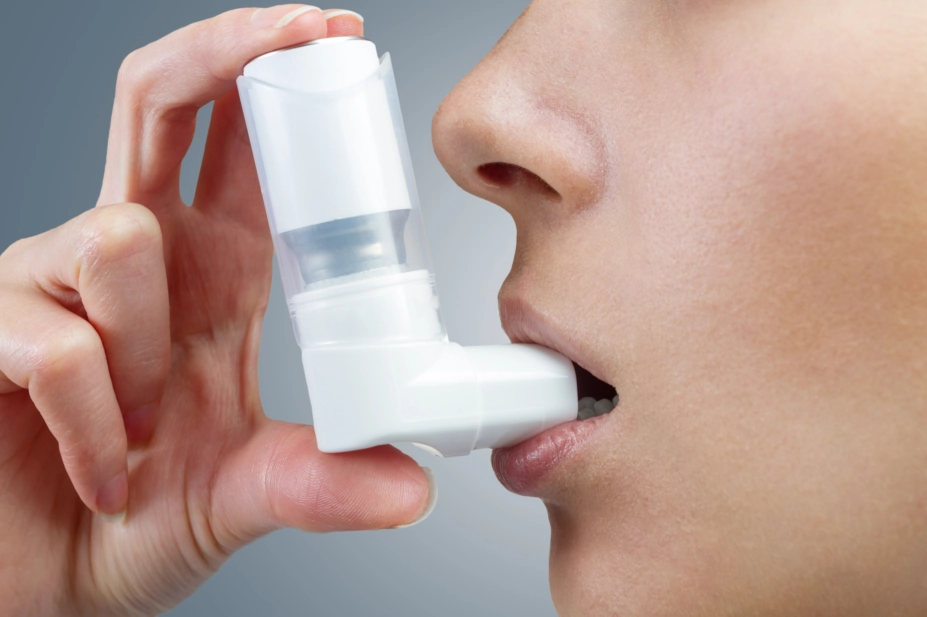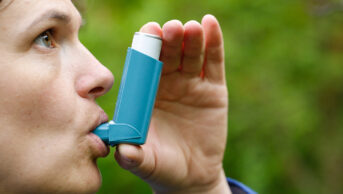
Shutterstock.com
A study has shown that temporarily quadrupling the dosage of inhaled corticosteroids (ICS) during periods of worsening asthma cuts the rate of serious asthma attacks by 20%.
Compared with people assigned to a standard asthma management plan, those who increased their ICS dosage reduced their use of oral steroids and were less likely to be admitted to hospital.
The researchers say the findings should help people with asthma to better manage their condition, and could also help to prevent deaths.
“Our study shows that patients can reduce the risk of a severe asthma attack by following a self-management plan which includes a temporary four-fold increase in their preventer medication when their asthma is deteriorating,” said Tim Harrison, from the University of Nottingham School of Medicine. “This means less need for oral steroids such as prednisolone, less admissions to hospital with severe asthma and hopefully fewer deaths from asthma.”
The study, published in the NEJM, involved 1922 adults and adolescents with asthma who were receiving ICS and had experienced at least one exacerbation in the previous 12 months. All participants received a standard UK asthma management plan that recommended increasing bronchodilator dosage when asthma control deteriorates, but half of the participants were also advised to concurrently quadruple their ICS dosage.
Overall, 420 (45%) of those assigned to the quadrupling group reported a severe exacerbation in the year after randomisation, compared with 484 (52%) in the non-quadrupling group (hazard ratio: 0.81). Additionally, fewer of these patients received systemic glucocorticoids (33% vs 40%) and they had fewer unscheduled health care consultations (41% vs 47%). There were three hospitalisations for severe asthma in the quadrupling group, compared with 18 in the non-quadrupling group.
However, adverse events were more common in the quadrupling group, in particular rates of oral candidiasis and dysphonia.
Previous research has indicated that doubling the dose of inhaled corticosteroids around the time of an exacerbation was not effective at preventing severe asthma attacks, leading Harrison and colleagues to hypothesise that a quadruple dose may be required.
Anna Murphy, Royal Pharmaceutical Society respiratory clinical spokesperson, said the findings support this idea, but further research will be needed to better understand the systemic effects of high-dose ICS.
She added that it was important to emphasise the importance of patients having a personalised asthma action plan.
“Only approximately 20% of patients have an up-to-date plan, yet the evidence is overwhelming on the positive outcomes of patients being able to self-manage at a time of loss of asthma control,” she said.


